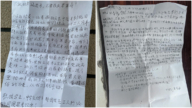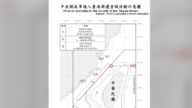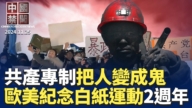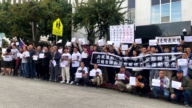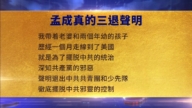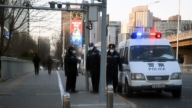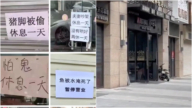【新唐人2014年06月24日訊】山西運城市官方網站日前披露,中共中央「安全委員會」正部署對境外非政府組織和活動情況展開全面調查。目前,報導原文和轉載文章都已經被撤。有分析人士指出,中共向來掌握境外非政府組織的情況,但都是靜悄悄的做,這次卻被曝光,而引發關注。
6月17號,山西運城市的官方網站「運城市陽光農廉網」發佈了一分文件,這分文件披露,今年5月到7月底,由中共「國安委」統一部署,要對在華境外非政府組織及其活動情況,展開一次全國範圍的全面、徹底調查摸底。
調查工作要求「不留死角」,針對境外社會團體、基金會、民辦非企業單位,還包括協會、學會、商會、研究院等非政府、非營利組織等,進行深入細緻的梳理排查。
大陸深圳當代社會觀察研究所所長劉開明:「境外NGO在華的活動,它(國安委)要了解有關情況,肯定是它份內的工作,只是說,把以前可能分散在各個部門掌握的情況,總體上彙總過來。再一個就是,有一些可能不清楚的,要進一步摸清情況吧。」
大陸《觀察者》網站,6月20號也刊登了《國安委部署摸底調查在華境外非政府組織》一文,文章指出,安徽霍山縣、福建平和縣等地方政府,都發佈了就境外非政府組織和活動進行調查摸底的通知。廣西、山東、廣東等地也採取了類似行動。
旅美中國社會問題研究人士張健:「對在華非政府組織進行察查摸底,也符合中共的一貫做法,最主要的原因是一旦和中共發生嚴重衝突的時候,它應該有這一套措施。國安委最主要的任務,第一要穩固國內,第二是把所有的資源針對國外。現在這些非政府組織機構在國內越來越多,這些機構也可能在今後中國的政治風波當中會起到一個推波助瀾的作用。」
《觀察者》網站的文章被不少大陸媒體轉載,但不久後,所有的文章都被刪除。而「運城市陽光農廉網」的原文也不見蹤跡。
中國反政治迫害同盟主席劉因全:「可能是有人把這個消息透露出來,被發現以後,又下令刪除,我想,不是官方正式的委託他們透露這個消息。」
據報導,中共當局要求地方政府官員不要對這項調查公開講話,以「避免引起國內和外國的擔憂和猜測。」
國際性非政府組織「綠色和平」的中國發言人向《德國之聲》表示,看來這一消息是被洩露的內部通知。
劉開明:「這次的起因是山西一個地方政府的一個網站公布了這樣一個消息,具體用到了國安委這個單位的頭銜,這樣就很多西方媒體以這個為一個基本的消息來源,進行一個報導。歷來境外的機構在華的活動,國家有關部門一直是有掌握的,只是說,以前這都是屬於悄悄的做的。」
日前,中共中紀委駐「中國社會科學院」紀檢組組長張英偉,批評「社科院」的意識形態存在四大問題,其中一個問題是「接受境外勢力點對點滲透」,「社科院」副研究員高程19號在「微博」透露,所內已開始填表調查個別學者與海外機構,特別是非政府組織和基金會的來往和財務關係。
據了解,中共政府要求所有非政府組織都要登記,但由於程序複雜困難,許多中國本國和境外的NGO不得不在沒有登記的情況下運作。
英國《路透社》評論指出,目前有許多外國NGO在中國境內運作,但多以工商註冊。中共政府對其中的一些組織懷有戒心,懷疑它們試圖傳播西方的價值觀。
張健:「國安委採取的很多行動,尤其像這樣一個行動,它都是不符合中國憲法的要求,所以進行秘密調查。它們認為這個消息曝光以後,又把國安委陷入一個與人民為敵,與民主為敵這樣角色上,它當然非常不願意。」
北京非政府組織「益仁平中心」負責人陸軍透露,中國的NGO之路非常短,資源經驗都非常少,對於國際合作跟援助,中共當局一直是緊張不安的。高規格的大範圍普查,是當局的一種緊張情緒的體現,擔心NGO會動搖它的政權穩定。
採訪/朱智善 編輯/陳潔 後製/陳建銘
CCP Internal Leak: Investigate Foreign NGOs
Yuncheng City official website of Shanxi Province disclosed
the National Security Commission (NSC) is deploying
investigation of foreign NGOs and their activities.
However, the post has been deleted.
It is analyzed that the Communist regime has secretly exerted
control over foreign NGOs.
However, the exposure of the fact is highly concerning.
On June 17, the official website of Yuncheng City disclosed
NSC’s unified deployment: a nationwide investigation
of foreign NGOs and their activities.
The investigation will leave no stone unturned.
The in-depth and meticulous investigation will target foreign
organizations, foundations, private non-enterprise units, also
associations, societies, research institutes
and other non-governmental, non-profit organizations.
Institute of Contemporary Observation in Shenzhen,
Liu Kaiming: “Foreign NGO activities in China are certainly
within the scope of the NSC duties.
It is an act to collect information as a whole.
It could also be an act to clarify what’s not clear in the past."
The Chinese website, Guancha.com, also released an article
on June 20 about the NSC’s investigation of foreign NGOs.
Local governments engaged in the survey of foreign NGOs
at local level are Huoshan County of Anhui Province,
Pinghe County of Fujian, and local governments of
Guangxi, Shandong, and Guangdong, said the report.
China’s social problems researcher Zhang Jian: “The thorough
investigation of NGOs in China is in line with the CCP’s
practice, as a measure in the event of serious conflict
with the CCP.
The main tasks of NSC are to maintain stability in the country,
but also (to guard) against foreign forces in the country.
There are more NGOs in China now.
These NGOs could play a role in the political turmoil in China."
This article by Guancha.com was quoted by many other
Chinese media.
However, these articles, including Yuncheng City website article,
are now all gone.
Chairman of Alliance of anti-political persecution Liu Yinquan:
“Someone could have deliberately revealed this information,
but was ordered to delete it.
I don’t think it’s officially commissioned to reveal the news."
Reportedly, the Communist authorities demanded no public
talk from local officials about the investigation, to “avoid
concerns and speculation from domestic and foreign."
International NGO Green Peace in China spokesman told
Deutsche Welle, it seems a leak of an internal notification.
Liu Kaiming: “Because Shanxi local government announced
the news, with the NSC specifically mentioned,
many Western media reported it based on this source.
The domestic NGOs and activities have been controlled
by relevant departments, but only secretly."
Recently, Central Commission for Discipline Investigation
team leader stationed in Chinese Academy of Social Sciences
(CASS) criticized the four ideological issues of CASS.
One of them is the penetration of foreign forces.
CASS Associate Researcher Gao Cheng revealed on the 19th
on Weibo, CASS has initiated a survey of individual scholars
associated with overseas institutions, in particular, financial
relations with non-governmental organizations and foundations.
It is understood that the regime requires all NGOs to be
registered.
The complex and difficult process has many domestic
and foreign NGOs operate without proper registration.
Many foreign NGOs also operate in China, though they have
traditionally registered as businesses as the approval process is
easier.
Beijing has treated some of them with suspicion, worried they
may try and spread foreign values, reported Reuters.
Zhang Jian: “The many tasks of the NSC are not in line
with the requirements of the Chinese Constitution, that’s why
secret investigation has been conducted, such as this one.
The exposure of the information has put the NSC as the enemy
of the people, of democracy. That’s why it is reluctant."
Beijing NGO, Yirenping Center, Lu Jun revealed,
the NGO in China has a very short path and lacks resources
and experience.
The CCP is uneasy about international collaboration
and assistance.
The high-profile survey reflects the tension and concern of
the authorities, fearing the NGOs might shake its political
stability.
Interview/ZhuZhiShan Edit/ChenJie Post-Production/ChenJianPing



